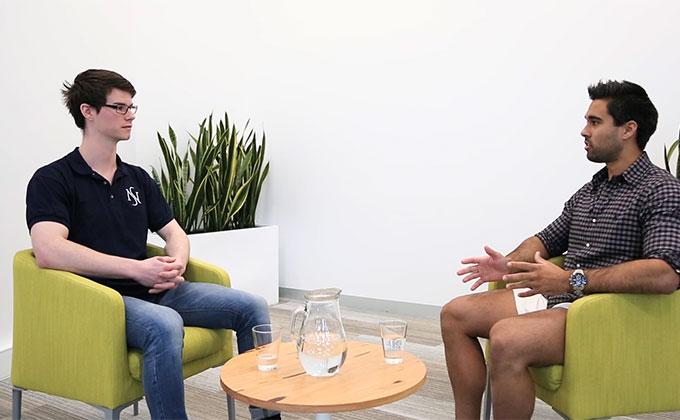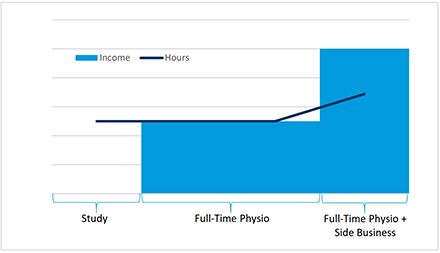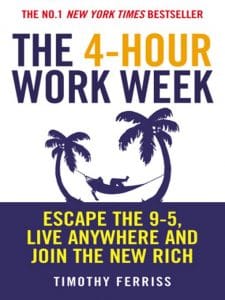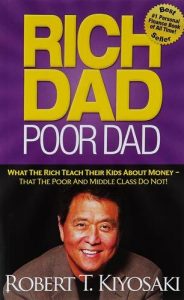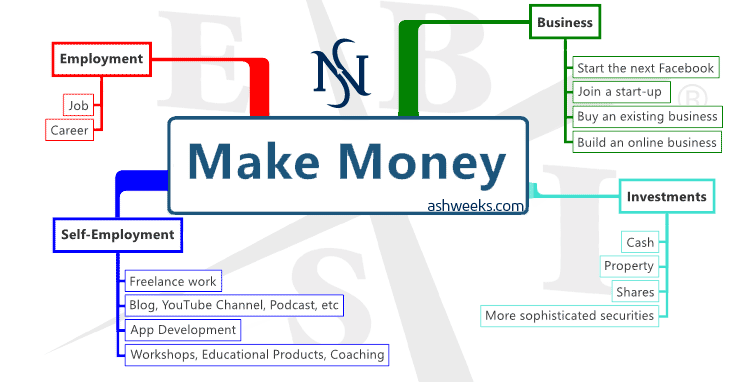I recently interviewed Jordan Gauder, the founder of Generation Physio. He spoke of his journey from high school to running a successful physiotherapy business and living a lifestyle he loves, and we discussed the challenges and rewards Jordan has faced. These lessons and experiences could give you ideas for what direction your career path might take in the future.
Career & Business Success Lessons
1. If You’re Not Sure About a Career, Test It
Jordan had an easy enough time figuring out one career path he could make an income from. In Year 10, he combined his love of sport with the job guides his school offered and found that physiotherapy could be a good option.
However, he didn’t just stop there and start planning his studies around that idea. He tested it.
Jordan’s Mum arranged work experience with a few physiotherapy practices on the Gold Coast and he found he really enjoyed his experience. He loved seeing physiotherapists helping to improve their clients’ quality of life, and sport was involved. So he thought, “Hey, this would be a great profession“.
If you don’t test a career out with a bit of experience, volunteering, or shadowing (following a mentor or friend around their job for a few days to see what they do), then you simply won’t be sure that the career you have chosen is going to be enjoyable. Don’t spend years studying only to find out that you don’t enjoy what you do for a living.
2. If You Have a Goal, Make a Plan
Goals without plans are just wishes. If you want something in life, make a plan to achieve it.
With the goal of becoming a physio, Jordan made a plan with the help of the jobs guide his school provided him. Jordan said it listed, “how you get into that profession, whether you need to go through university, what kind of OPs or ranking score that you needed, [and] what subjects were prerequisites to get into the particular degrees that you needed to get into before getting into that profession.”
Resources like this are available in every school, and definitely searchable on Google.
Start with the end goal in mind and work backwards to where you are today:
- What career paths might you like? List them
- Try a few out (volunteer, shadow someone, do some work experience). Which ones did you actually enjoy? Put them in order of preference
- For each path, what qualifications do you need? An apprenticeship? A university degree? A post-graduate qualification? Industry experience?
Is there only one path? There might be a fastest path, but what are alternatives? - Are there subjects you need to do or marks you need to get in order to be admitted into your degree/apprenticeship/etc?
3. There Is Always a Way to Do What You Want to Do
Jordan followed the most direct path until the end of Year 12 where he didn’t get the high school ranking he needed for direct entry into physiotherapy. Jordan’s second choice of degree was a Bachelor of Exercise and Sports Science at Bond University, which he had the ranking for. From his research, he knew if he got into exercise science and did well enough, he could go into physiotherapy under a Master’s program.
And he did. Jordan got the grades to get into Bond University’s Doctor of Physiotherapy program, and became a physio: his goal since Year 10.
There is always a way to do what you want to do. It’s just a matter of doing your research and planning (with alternative pathways in case things don’t perfectly go to plan). Follow that plan and you’ll soon be on your way to success in your career, business, or other life goals.
4. You Can Often Earn More Money in Business Than in Employment
After university, Jordan worked in a graduate job as a physio and he was really enjoying it. “I had money for the first time in my life!”
However, after six months in full-time work he realised he wasn’t satisfied with the usual 9 to 5 routine. “I had a bigger appetite and I thought that my efforts and my abilities and the hard work that I wanted to put into something could be utilised a little bit better“. So he started using his physiotherapy skills in a side-business, meeting clients outside of the hours of his full-time job.
Not three months later, his side-business was bringing in the same amount of money as his full-time job with about 10 hours of extra work a week. That’s a 100% increase in income from a 25% increase in hours:
At that point, the potential for greater income from his own company was obvious and he left full-time work to focus entirely on his business.

He started a fully fledged mobile physiotherapy practice, Generation Physio, where he still currently going to different clients’ homes, whether that be residential aged care homes, nursing homes, or retirement villages.
In the post on The Pros and Cons of Different Money Making Methods, I use Robert Kiyosaki’s Cashflow Quadrant to distinguish between the four different types of income: employment (E), self-employment (S), business (B), and investment (I). Moving from the E Quadrant to the S Quadrant is what allowed Jordan to boost his income and live the lifestyle he wanted.
5. Take Business Risks While You’re Young
While you’re young, you have very little obligations and responsibilities — often no mortgage or rent, no kids, and no career that you’re thoroughly invested in. Taking your chances with a business and failing is not going to hurt you as much now as if you tried when you were 10 years into a career with a family and mortgage.
Jordan said, “really taking a leap of faith and seeing what happens… This is the best time now to really try to reach your full potential and take those risks, because you can always get back on your feet if it doesn’t work out. Try something else… keep working towards what you really want to do.”
To lower the risks even further, just start your business on the side. Things might not work out. If they don’t then you’ve still got your full-time job to keep you financially steady. Alternatively, your business might take longer to get to a profitable stage than you thought. For Jordan, “It just happened that the side business grew into something bigger than I originally thought it would be.”
Jordan’s Advice to New Entrepreneurs
I asked Jordan if he had any advice for someone who is wanting to start their own business, and perhaps who is not happy with where they currently are.
“I think one of the best decisions I made was actually reading. So, looking at Robert Kiyosaki: Rich Dad Poor Dad*, looking at Tim Ferriss: 4-Hour Work Week*; and reading a couple of authors and reading some blogs. For example, NeverSettle.”
Educate yourself on what it actually takes to run you own company. You need to have an idea of how things work before you go into business, and Jordan found that reading about how other successful business owners thought and acted helped him prepare for going out on his own.
The Biggest Challenge Faced While Building a Successful Business
Running a successful business has massive rewards. This can be directly, through the income you can earn, or indirectly. For example, Jordan emphasises the control and freedom he now has over how he lives and what he does with his time.
However, building a profitable business is not easy. Jordan’s biggest challenge was time and the sacrifices involved in prioritising the business over lifestyle at the beginning.
“I was putting in long hours and I was having to make those sacrifices where I wasn’t able to… go out to friends’ functions or I wasn’t able to go to the gym when always liked my health and fitness — sometimes the business took priority. But what I found in the longer run as I was able to develop a more efficient business and as I improved my skills, I was able to fit in a little bit more time into doing things that I wanted to do. So I think a big thing is, yes, sacrifice. That’s the biggest challenge. But I think, after hard work and adversity, I think you can get through that.“


